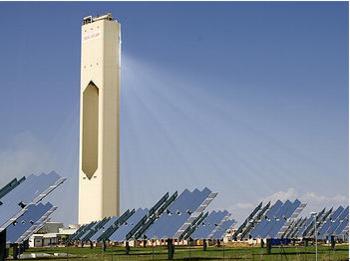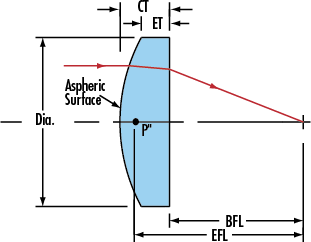Convex Aspheric elements are widely used to reduce aberrations, aspheric lens is ideal for light collection, projection, illumination, detection, and condensing applications.  VIS coating option provides less than 1.5% reflection from 425 – 675nm. NIR coating option provides less than 1.5% reflection from 600 – 1050nm. Contact our sales department for volume pricing or for help specifying a custom aspheric lens.                                                                               Aspheric Lens   Bi Convex Aspherical Lens,Molded Glass Aspheric Lens,Convex Aspherical Lenses,Aspheric Condenser Lens China Star Optics Technology Co.,Ltd. , https://www.csoptlens.com The global solar cell market is facing a deep crisis, with sharp price declines pushing several Japanese manufacturers into bankruptcy. As the world grapples with overproduction, many companies are struggling to survive, shifting from upstream to downstream operations in an attempt to stay afloat. Will the oversupply finally ease, or will more firms collapse before that happens? The battle for survival continues across the industry.
The PVJapan 2012 exhibition, held from December 5th to 7th at the MEI Conference and Exhibition Center in Chiba Makuhari, attracted over 10,000 visitors daily, marking a strong turnout despite the uncertain market conditions. However, not all was well behind the scenes.
One of the most notable absences at the event was the booth of YOCASOL, a former Fukuoka-based solar cell manufacturer. Just one week before the show opened, YOCASOL filed for civil rehabilitation under Japan’s legal framework, signaling the company's financial distress. This move came as European markets slowed and prices dropped dramatically, leading to multiple bankruptcies among Japanese solar firms.
YOCASOL was originally part of MSK, a mid-sized Japanese solar company. In 2006, it was acquired by Suntech Power, then the world’s largest solar cell producer. After the acquisition, Suntech decided to shut down the Fukuoka factory, which sparked outrage among employees who had built the company from the ground up.
In response, the workers initiated an Employee Buyout (EBO), raising funds through their own contributions and support from local business revitalization programs and Marubeni, eventually forming YOCASOL. Initially, the new company thrived on OEM orders, but as the European market stalled and demand declined, YOCASOL found itself in trouble.
According to data from the Imperial Data Bank, YOCASOL’s sales peaked at around 7.9 billion yen in the 2008 fiscal year, but dropped to just 1.3 billion yen by 2011. The company accumulated nearly 2.46 billion yen in debt and could no longer sustain itself independently.
Industry experts suggest that YOCASOL’s reliance on OEM contracts without building its own brand contributed significantly to its downfall. While residential solar panels offer higher profit margins, the sector is highly competitive, with tight pricing controls due to government subsidies. YOCASOL launched its own brand, AOSoLAR, in 2011, but failed to establish a solid warranty and after-sales service system, making it difficult to compete.
The global solar market, currently around 30 GW, faces severe overcapacity, with production capacity reaching 50 GW. Prices have plummeted, with polysilicon module spot prices dropping from $1.6 per watt in January 2011 to below $0.7 per watt by November 2012.
Germany’s Q-Cells, once the top producer, went bankrupt in April 2012. Similar trends are emerging in China, where many companies are being eliminated. In Japan, major players like Mitsubishi Heavy Industries and SUMCO have exited the solar business, while Nippon Steel Materials and Sharp’s joint venture also closed their raw material operations.
Despite the challenges, some believe that technological innovation and long-term adjustments may be the only path forward for Japanese manufacturers. Though painful, this period of restructuring might ultimately lead to a stronger and more sustainable industry.
The global solar cell market is facing a deep crisis, with sharp price declines pushing several Japanese manufacturers into bankruptcy. As the world grapples with overproduction, many companies are struggling to survive, shifting from upstream to downstream operations in an attempt to stay afloat. Will the oversupply finally ease, or will more firms collapse before that happens? The battle for survival continues across the industry.
The PVJapan 2012 exhibition, held from December 5th to 7th at the MEI Conference and Exhibition Center in Chiba Makuhari, attracted over 10,000 visitors daily, marking a strong turnout despite the uncertain market conditions. However, not all was well behind the scenes.
One of the most notable absences at the event was the booth of YOCASOL, a former Fukuoka-based solar cell manufacturer. Just one week before the show opened, YOCASOL filed for civil rehabilitation under Japan’s legal framework, signaling the company's financial distress. This move came as European markets slowed and prices dropped dramatically, leading to multiple bankruptcies among Japanese solar firms.
YOCASOL was originally part of MSK, a mid-sized Japanese solar company. In 2006, it was acquired by Suntech Power, then the world’s largest solar cell producer. After the acquisition, Suntech decided to shut down the Fukuoka factory, which sparked outrage among employees who had built the company from the ground up.
In response, the workers initiated an Employee Buyout (EBO), raising funds through their own contributions and support from local business revitalization programs and Marubeni, eventually forming YOCASOL. Initially, the new company thrived on OEM orders, but as the European market stalled and demand declined, YOCASOL found itself in trouble.
According to data from the Imperial Data Bank, YOCASOL’s sales peaked at around 7.9 billion yen in the 2008 fiscal year, but dropped to just 1.3 billion yen by 2011. The company accumulated nearly 2.46 billion yen in debt and could no longer sustain itself independently.
Industry experts suggest that YOCASOL’s reliance on OEM contracts without building its own brand contributed significantly to its downfall. While residential solar panels offer higher profit margins, the sector is highly competitive, with tight pricing controls due to government subsidies. YOCASOL launched its own brand, AOSoLAR, in 2011, but failed to establish a solid warranty and after-sales service system, making it difficult to compete.
The global solar market, currently around 30 GW, faces severe overcapacity, with production capacity reaching 50 GW. Prices have plummeted, with polysilicon module spot prices dropping from $1.6 per watt in January 2011 to below $0.7 per watt by November 2012.
Germany’s Q-Cells, once the top producer, went bankrupt in April 2012. Similar trends are emerging in China, where many companies are being eliminated. In Japan, major players like Mitsubishi Heavy Industries and SUMCO have exited the solar business, while Nippon Steel Materials and Sharp’s joint venture also closed their raw material operations.
Despite the challenges, some believe that technological innovation and long-term adjustments may be the only path forward for Japanese manufacturers. Though painful, this period of restructuring might ultimately lead to a stronger and more sustainable industry.
Aspherical Lens specification
Machining scope
φ5-200mm+0/-0.2
Material
All kinds of optical glass and infrared materials aspheric(silicon,germanium,crystals etc.)
The face accuracy
P-V<0.3 muon m
Surface quality
20/10-40/20
Production capacity
2000 pieces per month